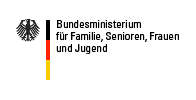Challenges
Challenges
Federal financial structure of the Federal Republic of Germany
The federal structure of the Federal Republic is the reason why in many subject areas there are interlocking competencies and financial dependency between several levels (federal government, federal state, local authority). It frequently happens that legislation at one level results in tasks, expenditure and other effects with impact on resources at another level. This makes a gender-related a impact analysis of decisions with a financial impact, already difficult enough in many cases, even harder. As an example, the federal government obliges the local authorities to offer day care facilities for all children over 3 years of age. But the federal government has no influence on the scope of day care and on the level of charges to users. The consequences of this in terms of impact on resources cannot be easily estimated. Similarly, the level at which certain benefits are paid cannot in many cases change the way in which they are paid to take account of gender equality as it is not responsible for the underlying legislation. There are similar problems in the social security system. Large subsidies from the federal budget can only be subjected to a gender-related impact analysis if the social security bodies cooperate.
Different budgetary processes
Many public budgets are still done using the cameralistic system of accounting. This budgetary technique generally makes it hard to determine the costs actually incurred for a public payment. Thus, the primary requirement for regular analysis of the use of public expenditure is lacking. Within the context of cameralistic budgeting, therefore, a gender-related breakdown of the use of public expenditure can only be done with comparatively great effort. As this is, however, a core factor in Gender Budgeting, it is not surprising that activities for implementing Gender Budgeting can be seen above all in institutions that use other budgeting systems.
Many local authorities in the Federal Republic of Germany have changed their system of budgeting to performance-related budgeting or a product-based budget. This kind of budgeting is based on the determination of certain subsidies for a defined performance or a defined product. As a rule, this is accompanied by collection of data on the users, male and female of the performances. If this data collection is carried out in a gender-related way, then all the requirements are met for the gender-related breakdown of the use of public expenditure. As part of administrative modernization it is intended to define and regularly collect data in the individual subject areas on indicators for evaluating the actual situation and for achieving the political goals that have been set. If gender equality aspects are integrated as a factor in these indicators, then it will be possible to undertake regular, detailed and fact-based assessments of (specialized) political strategies in relation to their contribution to the realization of gender equality between women and men.
The federal structure of the Federal Republic is the reason why in many subject areas there are interlocking competencies and financial dependency between several levels (federal government, federal state, local authority). It frequently happens that legislation at one level results in tasks, expenditure and other effects with impact on resources at another level. This makes a gender-related a impact analysis of decisions with a financial impact, already difficult enough in many cases, even harder. As an example, the federal government obliges the local authorities to offer day care facilities for all children over 3 years of age. But the federal government has no influence on the scope of day care and on the level of charges to users. The consequences of this in terms of impact on resources cannot be easily estimated. Similarly, the level at which certain benefits are paid cannot in many cases change the way in which they are paid to take account of gender equality as it is not responsible for the underlying legislation. There are similar problems in the social security system. Large subsidies from the federal budget can only be subjected to a gender-related impact analysis if the social security bodies cooperate.
Different budgetary processes
Many public budgets are still done using the cameralistic system of accounting. This budgetary technique generally makes it hard to determine the costs actually incurred for a public payment. Thus, the primary requirement for regular analysis of the use of public expenditure is lacking. Within the context of cameralistic budgeting, therefore, a gender-related breakdown of the use of public expenditure can only be done with comparatively great effort. As this is, however, a core factor in Gender Budgeting, it is not surprising that activities for implementing Gender Budgeting can be seen above all in institutions that use other budgeting systems.
Many local authorities in the Federal Republic of Germany have changed their system of budgeting to performance-related budgeting or a product-based budget. This kind of budgeting is based on the determination of certain subsidies for a defined performance or a defined product. As a rule, this is accompanied by collection of data on the users, male and female of the performances. If this data collection is carried out in a gender-related way, then all the requirements are met for the gender-related breakdown of the use of public expenditure. As part of administrative modernization it is intended to define and regularly collect data in the individual subject areas on indicators for evaluating the actual situation and for achieving the political goals that have been set. If gender equality aspects are integrated as a factor in these indicators, then it will be possible to undertake regular, detailed and fact-based assessments of (specialized) political strategies in relation to their contribution to the realization of gender equality between women and men.
erstellt von Administrator
—
zuletzt verändert:
02.01.2010 20:07





